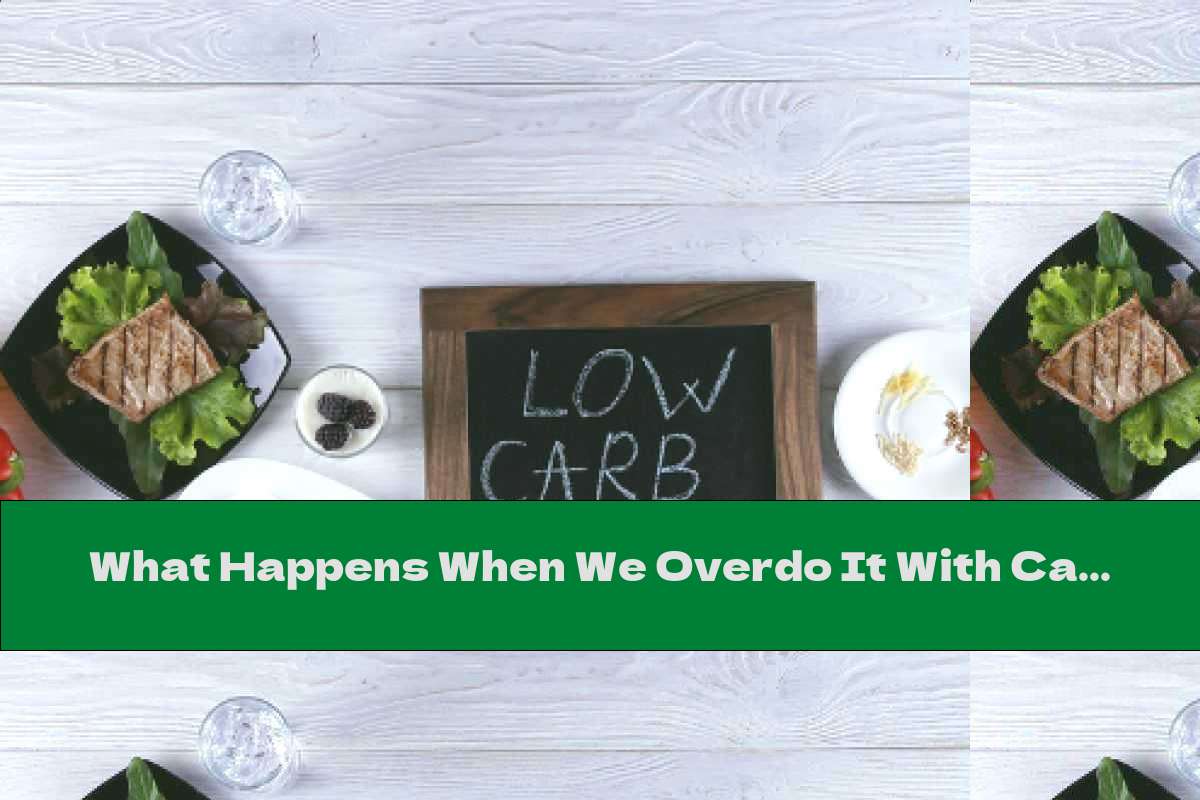What Happens When We Overdo It With Carbs?
 Author: Ivan Red Jr.
Time for reading: ~2
minutes
Last Updated:
August 08, 2022
Author: Ivan Red Jr.
Time for reading: ~2
minutes
Last Updated:
August 08, 2022

In this article, learn more about What Happens When We Overdo It With Carbs?. Excessive carbohydrate intake explains a number of daily ailments..
Carbohydrates are the main and fastest digestible source of energy for our body. Healthy eating requires between 45% and 65% of the calories in our diet to be obtained through them. However, with an excessive intake of carbohydrates, the balance of a number of life processes is disturbed.
In addition to being the cause of a number of ailments that we complain about on a daily basis, regular carbohydrate overeating also increases the risk of some serious diseases.
Depending on our physical and mental activity, we burn different amounts of calories every day. When we consume more carbohydrates than we need to maintain our energy reserves, the body transforms unused carbohydrates into lipids and directs them to storage in fat depots for use when needed.
However, this does not mean that obesity is the only negative effect of excessive carbohydrate intake. There are a number of other consequences that can impair the functioning of many systems in the body.
Fast but short-lived rise in blood sugar
Simple and easily digestible carbohydrates in confectionery, snacks and even fruit provoke a very rapid rise in blood sugar in just minutes after ingestion. This leads to a rapid influx of energy, which, however, is very quickly depleted and can lead to hypoglycemia . Thus, if we regularly rely only on sources of fast carbohydrates, there are complaints such as chronic fatigue, fatigue, dizziness, problems with concentration.
Deterioration of the intestinal tract
Simple sugars are used as a primary food source and by bacteria that naturally inhabit the intestines. This includes both beneficial bacteria in the intestinal flora and other potentially pathogenic bacteria and fungi. Stimulating their growth and reproduction with excessive carbohydrate intake is the cause of discomfort and bloating, increased gas in the intestines and more. complaints.
In the long run, digestive problems such as chronic constipation, upset stomach, enzyme deficiency and others may occur.
Neurological disorders
Many studies have shown that simple carbohydrates have an addictive effect and can be addictive if taken regularly. Cases of the so-called sugar abstinence, in which not getting the amount of carbohydrates to which the body is accustomed, can trigger neurological disorders such as irritability, anxiety, depression , etc.
The appearance of any of these complaints can always be seen as a signal that the body needs a more varied and balanced diet . Temporary adherence to a low-carb diet is a good solution when you need to restore the energy and emotional balance of the body or the activity of the gastrointestinal tract.
Related Articles
- Nutrition for Respiratory Health: Supporting Your Lungs with the Right Foods
- Boost Digestive Health with Buffer 500 - Benefits & Recipes
- The Truth About E477 in Food: What You Need to Know
- The Nutritional Value of Potato Chips: What You Need to Know
- Boost Your Health with Buffer 500: Benefits, Recipes, and More
Top Nutrition Articles Today
- . The Role of E249 in Nutrition: Health Effects, Safety, and A...
- . The Latest Food Pyramid: A Guide to Balanced Nutrition
- . The Nutritional Benefits of Quail: A Protein-Rich Superfood
- . Granadilla - Health Benefits
- . 7-day Diet With Eggs
- . Nutrition Trends for 2026: Superfoods, Recipes, and Balanced...
- . How To Salt Nettles
- . How To Fillet Mackerel
- . Nutrition Trends 2026: Diet Plans, Recipes, and Wellness Tip...
- . Nutrition Trends 2026: Personalized Diets, Sustainable Eatin...